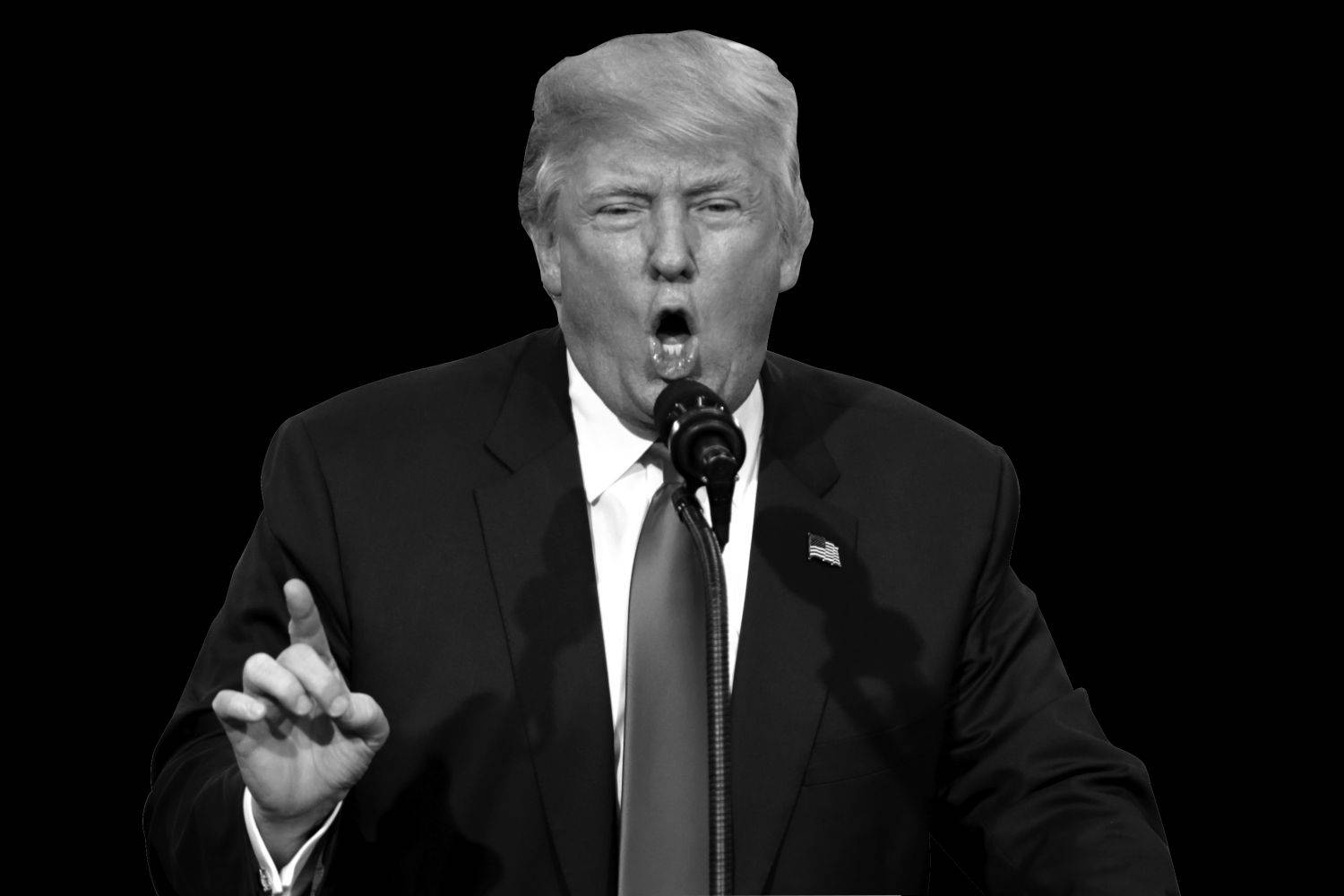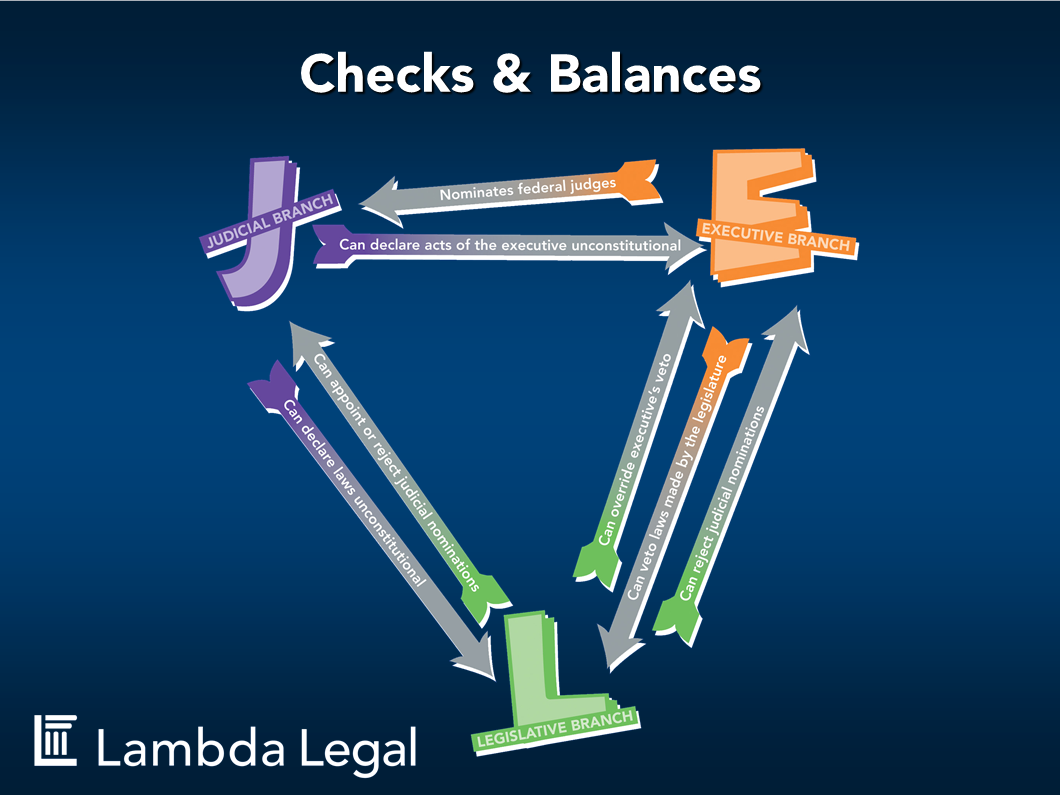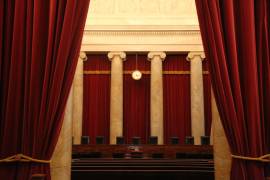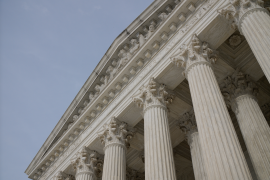Among the things troubling us about @realDonaldTrump is that it has become quite clear that the President doesn’t really understand the role of the courts and how the three branches of government work as checks and balances on each other.
Lambda Legal has been defending the rights of LGBT people and everyone living with HIV in the courts for over 40 years. We know why fair and impartial courts matter.
Most elementary civics classes teach students these basic lessons about our democracy.
The Framers of the U.S. Constitution intentionally set up a three-branch, co-equal system of government. Each branch (the Executive, the Legislative, and the Judicial) has separate duties, and all have the ability to “check” each other so that one branch does not run away with all the power. Courts are an essential part of our democracy and provide a vital balance in our government, particularly when it comes to protecting individual rights.






